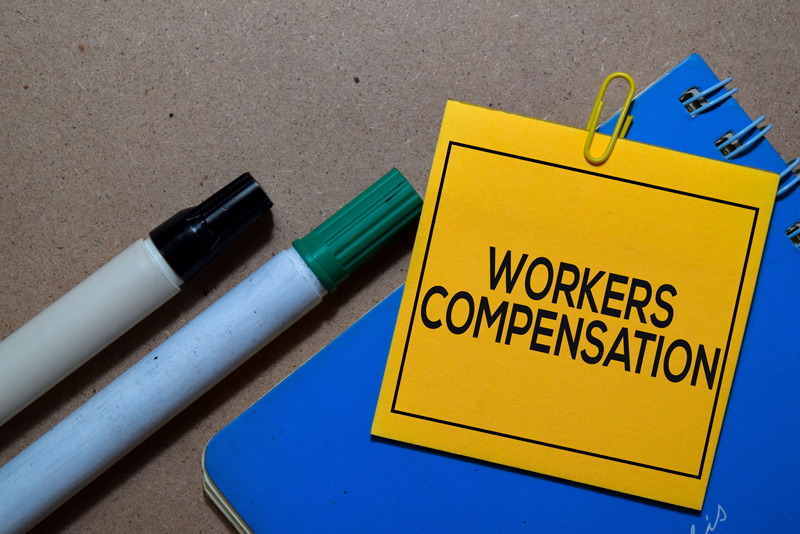When an employee has a work-related injury or illness, the employer is required by law to compensate for the medical expenses incurred and lost wages. Medical chart review is an important requirement when evaluating a workers’ compensation claim. Here are some important FAQs to consider with regard to workers’ compensation.
- What must an employee do if he/she has a job injury or job-related illness?
- The employee must immediately report the injury/illness to the supervisor. In case the injury or illness developed over time, it must be reported as soon as the employee understands or believes it was caused by their job. If it is immediately reported, it helps avoid problems and delays in receiving benefits including medical care required. If the employer is not aware of the worker’s injury within 30 days and this prevents the employer from performing a complete investigation of the injury and how the worker was injured, the worker could lose his/her right to receive workers’ compensation benefits.
- If the employee needs emergency treatment, he/she should get it and also inform the healthcare provider that the injury or illness is work-related.
- The employer is required to give a claim form to the employee within one working day after learning about the injury/illness. The employee must fill out the claim form and give it to the employer. The claim form is also available at the state DWC website.
- What happens if the employee fails to file a claim for workers’ compensation?
The employee could lose his or her right to benefits and medical care. - What if the employer is uninsured and an employee gets injured or ill on the job?
The employer will still be responsible for paying all bills related to the employee’s injury or illness. - Are all disabilities covered under workers’ compensation law?
No. Workers’ compensation covers only those disabilities that are related to an accidental injury “arising out of and in the course of the employment,” or to a work-related disease. - Does workers’ compensation cover psychological injuries?
Yes, if such injuries arise out of the course of the employee’s employment. The injured worker will have to undergo detailed psychological testing to prove the psychological injury. - An employee has a prior injury that is aggravated when he/she gets injured at work. Are such pre-existing injuries covered by workers’ compensation?
Such injuries may be covered if there is an aggravation of the earlier injury that was caused by the work-related accident. - What is a utilization review (UR)?
It is the program that claims administrators use to ensure that the treatment the injured worker receives is medically necessary. The law requires all claims administrators to have a UR program to determine whether or not to approve medical treatment recommended by the worker’s doctor. - Can an employee receive workers’ compensation benefits if the accident was caused by his/her own fault?
Workers’ compensation system doesn’t require injured or ill workers to prove who was at fault for the accident and injury. However, employees will not be compensated for self-inflicted injuries, those that are incurred under the influence of alcohol or drugs, and those that result from fighting. - Is a worker employed by a staffing agency covered by the Workers’ Compensation Act?
Yes. The Workers’ Compensation Act covers leased or temporary employees also. The staffing agency is most likely liable for workers’ compensation benefits if the employee is injured at one of his/her places of employment. - Are federal employees covered under the Workers’ Compensation Act?
No, federal employees such as postal workers for instance, are covered under the Federal Workers’ Compensation Act. - Independent contractors are not typically covered under workers’ compensation?How does an employee understand whether he/she is an independent contractor?
Courts and labor law enforcement agencies consider several factors when determining if an employee is an independent contractor. Some employers misclassify their employees as independent contractors to avoid payroll responsibilities and workers’ compensation payments. It is vital to understand that independent contractors are those who have control over how their work is done. An employee doesn’t fit the definition of an independent contractor when the employer,- Controls the manner in which he/she works or the details of the work
- Pays the employee an hourly wage or salary
- Has the right to terminate the employee
- Requires the employee to work specific days or hours
- Provides materials or tools necessary for the work
- Can an employer fire an employee because of his/her permanent disabilities due to a work accident and concerns of re-injury?
If there is no obvious risk of re-injury, an employee with a qualified disability under the Americans with Disabilities Act cannot be fired. The fear of re-injury cannot be considered as a valid reason for firing someone with a disability due to a workplace accident. - Is the injured worker’s personal information requested on various forms by the Division of Workers’ Compensation kept confidential?
Yes. Such confidential information can be used only to carry out their duties in administering workers’ compensation claims. It cannot be disclosed unless authorized by law to do so. - Can the employer take a portion of the injured employee’s benefits to pay for workers’ compensation insurance?
No. An employer cannot ask the employee to help pay for the insurance premium. - Who decides what type of work a worker can do while recovering?
The employee’s treating doctor has to explain in the medical report the following.- The type of work the employee can/can’t do while recovering
- The changes needed in the employee’s work schedule or assignments.
Workers’ compensation attorneys, and the medical record review companies that assist them with medical record review and documentation are aware of the complexities involved in processing a workers’ compensation claim. Injured workers that have doubts or concerns regarding their eligibility for benefits can obtain proper counsel from an experienced attorney and will have a better chance of winning the claim.




